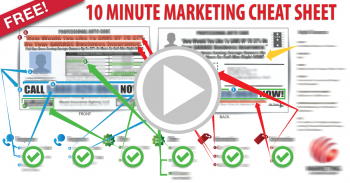Category Archives for Time Management
Web Marketing: A Good News/Bad News Platform
I don’t think it can be overstated that the web has brought with it unprecedented power. The power to reach your potential customer and put your marketing message in front of them cheaply and easily. Everyone is on the web no matter what niche you’re in, no matter your target demographic- they are there and with some trial & error, you can reach them.
That’s the good news. Now the bad news.
Almost no one knows how to market on the web successfully. This problem stems from a few key factors. First off- unless you’re a giant corporation, with an unlimited marketing budget, you cannot use traditional marketing methods on the web (sorry advertising agencies and traditional marketing companies). Anything designed for ‘brand awareness’ or ‘top of the mind’ isn’t going to generate the one thing small business owners and entrepreneurs actually need: customers.
Secondly, as the web has evolved over the past few years, more and more advertisers and ads have crowded the web, driving up prices and making it harder to get your potential customers’ attention. There’s even a condition called ‘Banner Blindness’ now where a percentage of people subconsciously ignore banner ads when they are surfing the web. Add to this the ever changing landscape of SEO (search engine optimization- which as of the time I’m writing this, 3/15/16, is dead, IMHO) as a quick traffic strategy and you’ll begin to see why so many people struggle to get any traction with their web marketing efforts.
So what can you do to enjoy success, while others fail? The answer is simple, but not easy.
To start, you’ve got to use the time tested and proven methods of direct response marketing. The web was literally made for this kind of advertising and it’s what every successful marketer and business owner I know uses. I’ve discussed this in previous blog posts.
The next success tip I’ll share with you is more of a mindset than a tangible thing- but it’s the most important part. You have to approach your efforts at web marketing with the mindset of ‘cracking the code’, and in reality it’s more like a 4-5 different codes. The overwhelming majority of people make a few feeble attempts at marketing online and then quit when they don’t see results. I like to tell my clients that they are mining for gold, and the web has a treasure chest of it- but that chest has a series of combination locks on it. In order to be successful online, you’ve got to figure out (dial in) the combination of each of these locks before you’ll get the gold (almost unlimited clients). Most importantly, you’ve got to have the emotional fortitude to go through test after test, trial and error with unwavering determination.
So what are some of these ‘locks’ you’ll need the combination to? Here’s a quick list of my top 6:
Where are my potential customers online? What websites, forums, etc.
What message ‘words’ will they click on?
What ‘image’ will they click on?
Are the clicks you’re getting from “qualified” prospects?
Can we improve on the “best” performing ads? (increase CTR- click through rate)
And lastly, do the clicks we’re getting convert to paying customers?
There are many more than this quick list but this represents a good start. Keep in mind that the lesson here is you’re always testing, working and refining your online marketing. You need to approach this task as an on-going effort, not a one and done type task.
Keep the right mindset, and your success is virtually guaranteed, because your ideal customer is online and with a little perseverance you will find and convert them to your customer, unlocking that chest of gold.
When you’re tired of beating your head against the wall and want proven, time tested methods and strategies that flat out work- bringing an avalanche of red hot customers to your door, then you need to grab a copy of Automated Entrepreneur Method right now. Save yourself countless hours of trial and error and get the shortcut to success right now.
You’ll also want to attend my webinar where I cover this topic and many more in depth. You can register for that here.
Yours in Profit,
Bob
Marketing Tips: How About Your Website?
For a million reasons, a website is a good idea. It gives your business, your brand, and your marketing a starting point. How does yours rank?
A website is more than a couple of pages with pictures. Unless your business is website development (and in most cases, you still need a LOT of help understanding what makes a website CONVERT visitors into buyers), getting help with your website is a good idea. My business is helping entrepreneurs structure their business and align marketing and business practices to make good money. I have not yet met a client who was not interested in making better money—and a good website is a smart place to start.
You have a website—now what?
The chances are good you already have a website. An employee, consultant, or maybe even a friend helped you get it together. Until you have time to optimize the site—it will do. So what does “optimize” mean?
Optimizing a website means different things to different people. Basically, it means making the most of your digital real estate. That is everything from the look and feel of your site, to the tools you use to analyze visits and conversions. Here are some steps to re-approaching your website as a marketing tool, and a placeholder in the digital world:
- What is your goal? A website may be largest part of your digital marketing campaign. Other channels include social media like Facebook, Twitter, Instagram, and Pinterest. While social media channels are a great way to interact with leads, amplify your brand, and drive traffic toward your products, your website is your institutional online presence. As you rethink your website—and your marketing—consider the overall purpose of your website, and how you want to allocate resources to keep your website, and your social media channels, fresh and up to date.
- Who is your customer? Your client or customer profile is essential to effective website design. How can you create and populate a website with interesting information if you cannot identify your customer? I work closely with small business owners to identify, and target—through marketing automation, online presence, and service—clients willing to pay more, for more value. Be sure you know who you are pitching at—it makes a lot of difference in your bottom line, and your profit.
- High quality content: Is your website one big advertisement? Splashy pictures, slogans, and product or services? Google places a premium on sites with a little more to offer—like free white papers, tip sheets, products, and other authoritative content that help users find the answers they need. A blog is a super tool for demonstrating knowledge of your business, and your product. In addition to offering free information on questions specific to your service or business, a blog is a valuable tool that establishes and demonstrates that you know what you are talking about, and can provide high value to your client, or customer. High quality content, through blogs, articles, video, and other freebies improves your profile, and oftentimes, your search engine rankings.
- Be compelling: Do you offer discounts, or periodic flash sales online? Have you solicited and posted recent, heartfelt testimonials about your service or product? Is there anything on your site—like passion for a charitable cause that sets your business—and you—apart as exceptional? Do you offer online chat during business hours? Few things gain respect more quickly than rapid, and reliable, customer service, whether in person, on the phone, or online. Is there any way for users to interact with your site—such as by commenting on a blog post, or offering photographs of their use of your product? Small moves to create personal engagement lead to big dividends.
- Social Media: Do your research, use the right channels—and keep it fresh.
Whether it is website construction, content, or social media maintenance, many small business owners make the mistake of trying to do it themselves. As I have said before—do not spend time learning something you do not want to do every day. If designing or writing high-end websites is your business—learn the ropes. Otherwise, do not spend every day trying to figure out how to keep your Facebook feed fresh—pay someone good to do it for you.
Talk to friends, get references, and find consultants or freelancers in the business of website design, social media, or blog maintenance. Use your resources, instead of taking your own time from the business tasks that only you can—or want—to do.
Effective marketing means more than a well-built and maintained website—but it is a good place to start.
When you are interested in making better money doing what you love—call me at 585-633-7563.
Yours in profit,
Bob Britton
Business Travel Tips for Summer’s End
Whether your business is a start-up or long-established, you need the most from your traveling time.
Like you, I am an experienced traveler. F or business, and for our Marketing Automation Group Live Events, I travel routinely all over the United States. I enjoy travel, especially when I can build in value—wherever I am.
or business, and for our Marketing Automation Group Live Events, I travel routinely all over the United States. I enjoy travel, especially when I can build in value—wherever I am.
On the road: Tips for busy entrepreneurs
At the end of summer, and as the back-to-business vibe kicks in, it is worth revisiting whether you can get a little more time for you—or your business—on days you are traveling. Consider these ideas when you want to get where you are going, a little easier:
Expedited screening: When traveling by air, you spend a lot of time waiting. Reduce the delay by registering for programs like TSA PreCheck, Global Entry, and other fast-lane programs. Choose the service that suits your travel habits or geographical location.
- Transportation Security Administration (TSA) PreCheck: TSA Pre gives you a faster way to move through security screening at most airports across the United States. With a shorter line through screening, you need not remove shoes, liquids, or laptops from your carry-on luggage. The cost of TSAPreCheck is $85 for three years. You can apply online.
- Global Entry: At $100 for five years, Global Entry is more expensive than TSAPre, but there are more perks. As the name implies, the service applies to passport and customs entry points at the United States border, not just within the country. Once registered, and returning to the U.S., you need only present your passport or identification at a Global Entry kiosk, scan your fingertips to verify identity and complete the standard customs declaration. Global Entry includes other services like Nexus, and Sentri, which offer similar expedited service to travelers to Canada and Mexico.
No expedited screening service guarantees that you may not occasionally be asked to step out of line and move through the usual security process. That said, you can save real time by taking advantage of programs that move you through security lines faster. Otherwise, try to wear shoes without laces.
Loyalty or not: Frequent flyer and other rewards cards just ain’t what they used to be. Because small business owners depend on affordable air travel, paying attention to these shifting, and sometimes shifty, programs is essential.
Delta Airlines recently changed the base of its popular SkyMiles reward system from miles traveled to dollars spent on airfare. Obviously, if you get a less expensive seat, correspondingly, your benefit goes down.
For any airline rewards, check the fine print. Because reward programs are changing, consider redeeming miles, and know the credit card cash-back benefits tied into airline points before applying. Remember that loyalty programs have nothing to do with loyalty. Manage frequent flyer miles with AwardWallet, TripIt, or other apps.
The devices: Make sure you charge all devices before you go, keep chargers with you, and carry small back-up charging devices. That said, the big risk for entrepreneurs traveling abroad is compatibility and security. If you travel often, you already know what your carrier provides. If you don’t already know—it is time to find out.
Information security, when traveling, is paramount. Some clients I know take temporary or blank devices when they travel. Many companies issue travel devices that are secure and wiped clean of proprietary and sensitive information. When traveling, consider these tips for devices that carry highly-sensitive business and personal data:
- When not in use, turn the device completely off.
- Before departing, make sure your device has all patches and appropriate security software installed. Create a temporary, or travel only, email account.
- Assume encrypted data can be captured, and do not expose sensitive information over free wifi networks. Do not use shared devices.
- Reset passwords before traveling, and upon return.
- Do not use your travel devices upon return until they are reformatted and software reinstalled to ensure ongoing security.
- Consider taping over laptop or other device cameras, and disconnect microphones.
- Disable any file sharing capabilities or network protocols before traveling
- Be sure to back up data.
- When abroad, register for security alerts.
Quality work time while traveling: When flying, pay attention to layovers. Sometimes less is not more. Airlines are boarding 45 minutes before flights now, making it a tighter squeeze if you face a one-hour layover. Layovers offer focused work time if you packed what you need, and prioritized the work you can do ahead of time.
Best for last—traveling can get you business: While you already have a business agenda, and a client to meet on your trip, consider business opportunities along the way. In coach, or business class, be friendly, engage seatmates, inquire about their business, and talk about yours—if they are interested. While waiting in line at restaurants, events, or conferences, any time is a good time to strike up a conversation with another business traveler. Endless stories are told of serendipitous meetings on planes, during delays, and in long lines that result in ongoing business, and even partnerships.
Most small business owners travel at one time or another. Plan ahead to make your trip as easy—and productive—as possible. The goal is enjoy the road, and achieve your business goals.
When at home, or while traveling, time means money. When you want to get more value for your time and more money in your pocket, I hope you will call me at 585-633-7563.
Yours in profit,
Bob Britton
Don’t “Should” on Yourself—Delegate!
 You are at your desk and it is stacked with things you should do. They’re weighing you down—
You are at your desk and it is stacked with things you should do. They’re weighing you down—
and crushing your productivity. What can you do?
Don’t should on yourself. When faced with tasks you do not have the time, or skill set, to pursue, give yourself a pass. Here’s why.
As an entrepreneur, you are the captain of your ship. At the helm, you have overall responsibility for the business and your strategic plan. This means you are not at the oars, the galley, or rigging. When you lose your focus, your business goes off course—or possibly sinks like a stone.
If you cannot do everything, who can?
Delegation and the small business owner
Trying to handle business goals outside your expertise and interest is exhausting and time consuming. As we discussed earlier, entrepreneurs must undertake the responsibilities only they can handle—without feeling guilty about not doing everything else.
If it worries you to hand off some of your business function to others, consider the real benefits of diversifying your workload:
- No need to be a jack of all trades: Part of your role as an entrepreneur is doing what you do best. You have ultimate responsibility for the quality and positioning of your brand, products and services. I have said it before, and I will say it again—do only what only you can do.
- More heads are better than one: When you delegate, you work with people with the skills, or the time, to handle tasks you cannot, or should not, be doing. Working with specialists, consultants, advisors, or your own team opens problem-solving to others with experience and creativity.
- Better base: Work with a team to stabilize your business and take advantage of individual strengths. As you grow your company, offload the pile of shoulds on your desk to people qualified and ready to handle them. Individual and business productivity increases as you—and members of your team—each manage core tasks.
- Scalability: Market readiness means your business can respond when opportunity presents itself. Identifying if—and how—your business can respond to a profitable idea means exploring scalability. Developing capable, reliable external resources allows you to delegate needed services to take advantage of market circumstances.
What types of tasks can you delegate?
Consider these tips when you think about what you could delegate:
- Business direction: Strategic planning, focus, and business direction are important responsibilities for small business owners. You can use consultants, mentors, and business groups to inform and shape your perspective. Critical business thinking is your job.
- What is your passion? In theory, you started your business to do what you love, and make a living at it. Identify what tasks are part of your skill set and that you want to perform.
- Essential services: Bookkeeping and payroll are among services that can be cost-effectively outsourced. Websites, blogs, and online marketing can be managed by social media specialists. Use marketing automation to build leads, increase customer loyalty, and save yourself time.
Delegation looks different for each company. I work with entrepreneurs to create business plans and technological solutions. To coach small business owners from making in the low six, up to seven figures, I provide focus and create solutions that save them time and money.
Some modes of delegation for a small business owner can include:
- Advisor or mentor: Work with an outside expert, mentor, or coach to create strategy, and manage market and business bumps.
- Consultant or contractor: Use a consultant or contractor for project management and coordination, to handle marketing, or to perform other tasks. Consultants offer high quality, scalable service.
- Hire: Use temporary or permanent hires to fulfill identified needs.
Think about delegating tasks and services before you become overwhelmed, and your services suffer. Keep the following pitfalls in mind:
- Putting it off: When you know you are overcommitted, get help and think about delegation. Do not procrastinate.
- Avoid wrong choices: A trusted business group, mentor, or associate is a valuable source of business referrals. Due diligence is a must when you are looking for contractors to help with your business.
- Stay away from micro-management: Whether you delegate to a trusted employee, or a reliable contractor, try not to micro-manage.
When you have a lot of things to do—and you know you are not going to do them—stop shoulding on yourself. Spend time thinking about your business, and move forward.
When you want to make more money doing the things you love to do, and you need focus—call me at 585-633-7563.
To your success.
Bob Britton
Here is Why You Will Never Have Enough Time
What is on your list? And what have you crossed off lately? Oh—you gave up on the list. You are just living in the trenches of too little time, and too much to do. Let me tell you a secret—you will never have enough time.
Not, at least, until you get smart about how to use it.
A lot of attention, business practice, logistics, and personal frustration are rolled up in the concept of time. Young, middle-age, senior, workday, weekend—all words that measure time, underpinned by the general understanding that time flies—fast. You either work with time or it works against you.
Time and the small business owner
Until you get smart about time, you will never have enough of it. Why do I keep talking about getting smart about time? Because as valuable as time is, most entrepreneurs do not see where, how, or why, they are exhausted and falling further behind each day. That is where getting smart comes in. Let’s talk about time.
You cannot make time, but you can spend it, and waste it. My business is to help entrepreneurs become successful. In fact, I aim to make my clients millionaires, work at what they love, and enjoy their lives, too. And trust me, you do not get there without understanding time.
When I work with clients, I check out how they do business, their processes, marketing, automation, products, services, and sales. When I first start working with small business owners, I see a lot of the following:
- Overworked professionals without enough time to tend to business, family, or personal needs
- Entrepreneurs who are not achieving success—even though they are constantly busy
- Owners who are so busy and overworked that they cannot stay ahead, and are in danger of losing their business
Any of this sound like you?
A closer look
Let’s take a look at some of the traits that seem like a lack of time but could be something quite different:
- Addiction: Addiction is a strong word that describes compulsive behavior. An addiction is the thing you cannot “not” do. It is not amusing that some people are addicted to their mobile electronic devices, and it is not helpful that many business people—whether involved in enterprise or small business—are addicted to being…busy. These individuals always have something going, know what is happening next, and literally cannot tolerate a quiet setting and an expectation of doing nothing. While being busy seems industrious, it can also be an excuse to hide the panic that occurs when an individual must stop and address their bottom line. A disassociated need to remain busy has no part in a successful small business plan.
- The difference between busy and effective: I frequently encounter busy executives who never have a spare moment. Because they build their business from the ground up, entrepreneurs are generally engaged in every level of their company. This keeps owners busy—but is not necessarily effective in reaching their objectives. I work with these entrepreneurs to understand how they are spending their most valuable resource—time—on low dollar activities that could be handled by others in their organization.
- Time management: There is no end to the amount of information and advice available to small business owners about time management. From the time we enter school, to when we retire, new processes, ideas, and formulas are touted as the best way to make use of your time. If charting your time, or using an app, works for you, that is great. But the most important thing to understand about time management and business ownership is how to stay in your power zone and make the time you do spend on your business—pay.
What is the power zone?
Your power zone is where you work best. As a business owner, it is your job to focus on the right things, and drive the focus of everyone who works for you. If you are off task, and losing days on unprofitable ideas—your business will suffer. From owning my own business, and in helping other run theirs, consider these important tips:
- Never learn anything you do not want to do for the rest of your life: Time and time again, I see entrepreneurs caught up in the next shiny object. Adwords, social media, marketing online—the next thing that is going to make you successful. If your business is helping people gain leads and traction with Facebook—great—learn Facebook. But if you are running a business, make sure Facebook is something useful to your company, and then use a consultant or specialist. It is completely ineffective to stop running your business to gain half-competencies at tasks that cannot help you—or your business—profit.
- Only do what only you can do: It is tricky—read it again. It means the best time management technique you can employ is to undertake only the jobs and tasks that you—as the owner—can do. It will quickly become clear where your time is going, and what kind of delegation structure should be put in place.
When you are doing what really needs to be done to become successful—you are not entrenched, you are growing your business.
While you cannot make time, you can save it. When you want to make more money from your small business, and spend less time doing it, call me at 585-633-7563.
To your success.
Bob Britton






